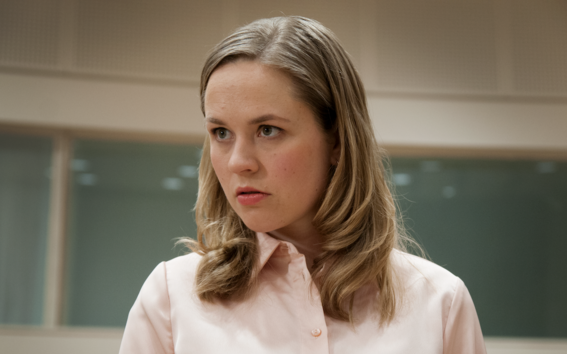Two new surveys confirm: gender exclusion is still common in the Finnish audiovisual industry

The Finnish audiovisual industry is far from being equal, reveals a new survey conducted by the Action! Project, an initiative of Aalto University and Women in Film and Television Finland.
Altogether 80 respondents expressed that there is a gender wage gap and that women are less likely to find employment, grants and funding for their projects than men. The biggest hinders are linked to networks, age and gender. In Finland, public funding within the av sector has a tendency to find its way to mainly the same production companies, which means that the right networks are essential to employment.
”All actors and decision-makers within the Finnish av sector should commit to the principles of equality law”, says Action! Project manager Kirsi Reinola. ”At the moment, we cannot verity the gender wage gap through statistics, this is a problem. And public funding is not pushing for equality. We need more pressure to make this happen.”
Inappropriate and disrespectful talk
Discrimination was evident in the findings of another survey, conducted in 2019 by the ”Small topic” group, a collective of professional Finnish female film makers. Altogether 40 respondents — representing fiction film, documentary and animation — expressed that gender-specific, negative assessment is common in funding and production negotiations.
During these negotiations, the topics, themes and characters proposed by female filmmakers, as well as the filmmaker herself, were undermined with inappropriate and disrespectful talk.
”There is not enough information about equality and inclusion issues within the sector. According to studies, European film schools produce almost as many female as male professionals, but female professionals have a hard time finding employment. This is lost potential”, says Raija Talvio, professor of screenwriting at Aalto University Department of Film, Television and Scenography.
Luckily, there are signs of positive development. For example last year, 51% of The Finnish Film Foundation funding was targeted at films directed by women, whereas the percentage was only 24% in 2011.
”We need concrete equality goals in funding, and they need to be measured long-term. We might also need to give special incentives in order to achieve change. The positive change can be seen when it comes to directors and screenwriters, but there is still a long way to go to change the gender imbalance that still exists between other crew roles.”
More information
Kirsi Reinola
Project Manager on the Action! Equality and Employment in the Audiovisual Sector project management.actionproject@aalto.fi
Tel. +358 50 478 2605
Nina Maskulin
Project Researcher on the Action! Equality and Employment in the Audiovisual Sector project nina.maskulin@aalto.fi
Tel. +358 50 584 6540
Raija Talvio
Professor of screenwriting at Aalto University Department of Film, Television and Scenography Raija.talvio@aalto.fi
Tel. +358 50 569 1128
Read more news

‘Mesoscale’ swimmers could pave way for drug delivery robots inside the body
Researchers have discovered how tiny organisms break the laws of physics to swim faster — such secrets of mesoscale physics and fluid dynamics can offer entirely new pathways for engineering and medicine.
Hanaholmen’s 50th anniversary exhibition lives on online – making the history of Finnish–Swedish cooperation accessible worldwide
MeMo Institute at Aalto University has produced a virtual 3D version of the anniversary exhibition of Hanaholmen.
Soil Laboratory Exhibition – Exploring the Dialogue Between Human and the Earth in Utsjoki
Soil Laboratory explores the relationship between humans and the earth as a living landscape through ceramic practices in Utsjoki.






